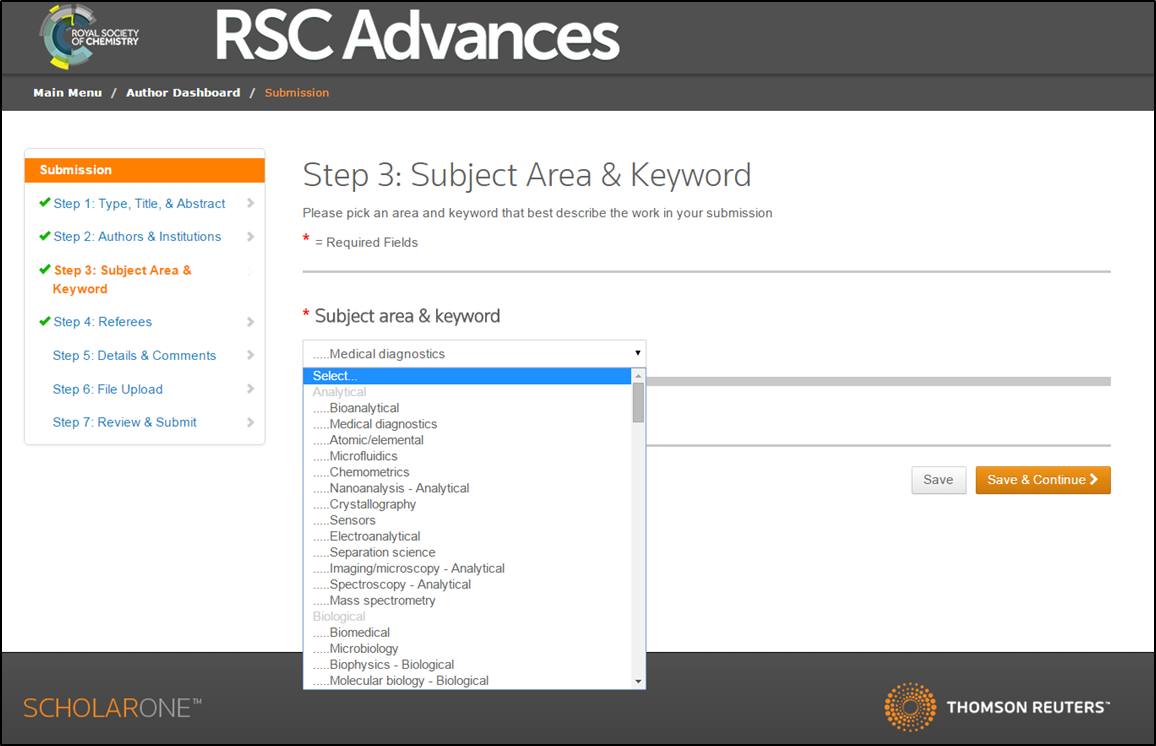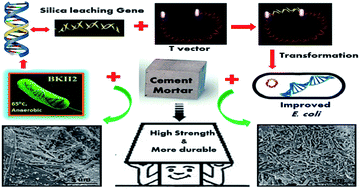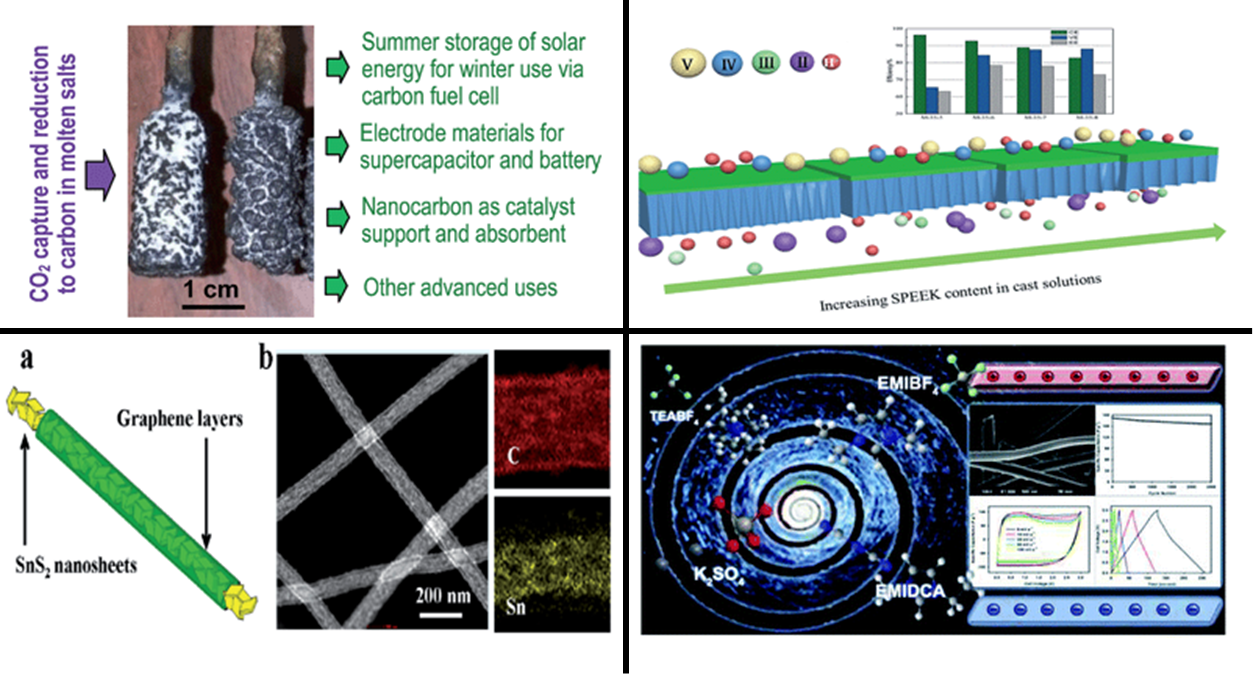RSC Advances
Reviewer Panel Member
TERMS OF REFERENCE
Role
To be a member of the RSC Advances Reviewer Panel and provide 24, 36 or 48 reviews per year.
You will be invited by Associate Editors to review submissions in your selected area(s) of expertise. Associate Editors will use your chosen areas of expertise, along with subject areas provided by authors during submission of their manuscript, to invite you to review suitable manuscripts.
Responsibilities of a Reviewer Panel Member
- To act as a reviewer for RSC Advances. Panel members can expect to receive, on average, from two to four manuscripts to review per month within their field of expertise.
- To advise and assist the RSC Advances Associate Editors in assessing manuscripts against the publication criteria of the Journal (see below) and to recommend suitable papers for publication in RSC Advances.
- To provide a recommendation and report via the manuscript processing system within the timeframe specified on the reviewer invitation email.
- To provide advice to the RSC Advances Associate Editors on borderline papers and act as adjudicator in cases involving conflicting reviewer reports and appeals where appropriate.
- To inform the Associate Editor, by responding appropriately to the reviewer invitation, if a manuscript sent to you for review cannot be assessed for any reason (including conflicts of interest) and where possible suggest an alternative member of the Reviewer Panel.
- To notify the Editorial Office, in advance, of any significant periods of time that you will be unavailable for reviewing.
- To regularly update your research interests via the manuscript processing system (http://mc.manuscriptcentral.com/rscadv).
Criteria for publication in RSC Advances
When assessing articles for publication in RSC Advances, please consider the following:
- Does the work present a significant advance over the existing literature? Is the advance clearly highlighted in the main article?
- Has sufficient evidence/data been provided to support the conclusions of the work?
- Has adequate characterisation data been provided for any materials/compounds that are reported? For full details, please see the “Characterisation of new compounds” section within our Journal’s webpage here: http://www.rsc.org/journals-books-databases/about-journals/rsc-advances/
- Are the results discussed in the context of the literature?
- Are the references relevant and do they appropriately reflect the existing literature?
- Do the figures and tables in the paper assist the reader in understanding the work? Are the structures of any compounds presented accurately drawn?
Recognition of services
As member of the RSC Advances Reviewer Panel your name will be displayed on the Journal’s website.
In recognition of the service you are providing, members of the RSC Advances Reviewer Panel will be issued with a certificate at the end of each year highlighting the valuable contribution you have made to the Journal.
Term
Membership of the Reviewer Panel is on a rolling basis from the date of your enrolment. If you wish to resign from the Reviewer Panel please contact the Editorial Office.
The Editorial Office will review your membership against the responsibilities listed above on an annual basis.
Confidentiality
The Panel Member shall keep strictly confidential all information which comes into his/her possession as a result of carrying out the activities specified herein which in any way relates to the business of the Royal Society of Chemistry. This obligation shall have no effect in relation to any such information which is (i) already known to him/her at the time of its disclosure to him/her or (ii) public knowledge or becomes so without his/her fault or (iii) disclosed to him/her subsequently by a third person or (iv) required to be disclosed by order of any court of competent jurisdiction or governmental authority.
Intellectual Property Rights
All material produced by you while carrying out your role as a Panel Member belongs to the Royal Society of Chemistry. The Royal Society of Chemistry retains the sole right and licence to publish such material in any format (including electronic) and to sub-license a third party to publish the material. The Panel Member must ensure that the material does not infringe the copyright of others.
Any articles submitted by you as an author or co-author for publication in any Royal Society of Chemistry journal are not covered by these arrangements. Any such articles will be dealt with according to the usual Royal Society of Chemistry publishing procedures and will require a signed “Licence to Publish” to be completed for each submission.
Data Protection
As a Panel Member you must protect the personal data of individuals, both members and non-members, in accordance with the provisions and principles of the Data Protection Act 1998. “Personal data” has the same meaning as in the Data Protection Act 1998.
Queries
If you have any queries, please do not hesitate to contact the Editorial Office at:
advances-rsc@rsc.org – for queries regarding this role; or
advances@rsc.org – for all queries relating to specific manuscripts or using ScholarOne.















